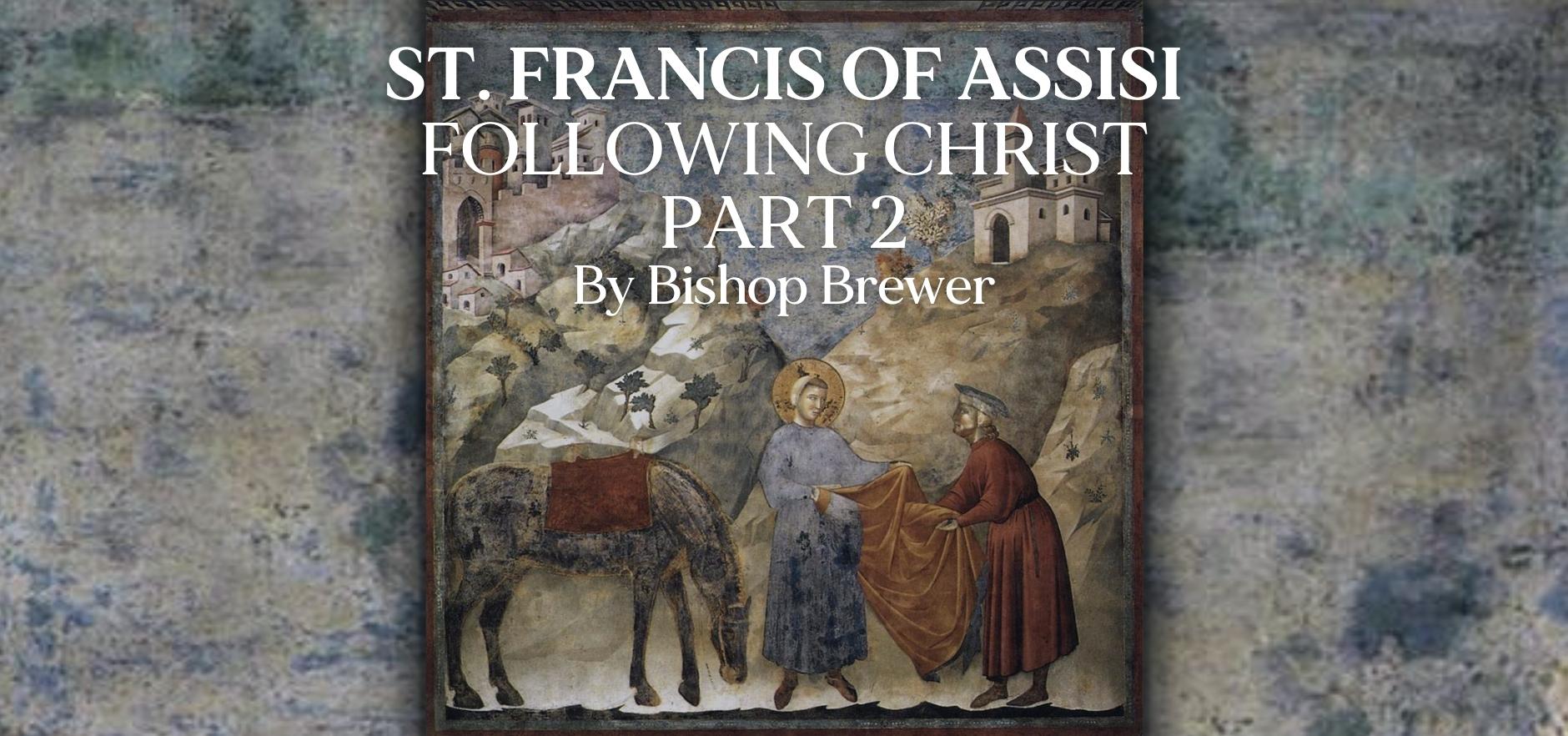St. Francis of Assisi – Part 2: Following Christ
In our last post, we discussed St. Francis of Assisi and the call to follow Christ through what becomes a repeated cycle in our lives: leaving, cleaving and serving.
Leaving
Leaving, in fact, looks like what Paul says in the book of Galatians: “May I never boast of anything except the cross of our Lord Jesus Christ, by which the world has been crucified to me and I to the world” (Gal. 6:14). In other words, to be a follower of Jesus, the cross of Christ stands like a stake between the vanities of the world, which I find so extraordinarily alluring, and me. It surrounds me like a fortress. But because of God’s kindness, it can feel permeable. I can feel as though maybe I can reach through it in some way and grab a piece of the world, a piece of the vanity of the world, just to make me feel a little better about myself.
And yet, I face the fact that to love the world is actually to be an enemy of God (see James 4:4). And so it’s not easy. And I understand that the temptation to do so is quite honestly, either self-centered, genuinely demonic or some combination of both.
Cleaving
And that temptation, including the fear of it, is a part of what causes me to cleave even more deeply to Jesus himself. Because I know enough to know that my job as Christ’s disciple is not to be allured by the world. It’s to serve Jesus in the world. There’s a huge difference.
My calling is not like that of Francis. It’s not to take on the monastic road, although I have tremendous admiration for those who do, because they continue to remind me of that with which I most deeply wrestle, which is what it means to be a servant of Jesus in the world rather than a comfortable citizen in the world.
Again, you see, there’s an extraordinary difference. And so I turn to him who is so much more patient with me than I am with myself. And as I do, I realize that the light of this love actually works in me the kind of childlikeness of which Jesus spoke when he said, “I thank you, Father, Lord of heaven and earth, that you have hidden these things from the wise and the intelligent, and revealed them to infants. Yes, Father, for such was your gracious will” (Matt. 11:25).
One of the things that will reveal to those who are children is God’s judgment on the world: “For if the deeds of power done in Capernaum had been done in Sodom, they would have remained to this day. But I tell you that on the day of judgment, it will be more tolerable for the land of Sodom than for you” (Matt. 11:23b-24).
That’s what precedes the tenderness of Matthew 11:25. In other words, when I see Jesus in his splendor, his beauty, in his glory, in the depths of what I know, and the forgiveness of sin and the promise of eternal life, it is exactly there that I see the world more accurately as a system under judgment. And I realize that to step into that world actually puts me in a place of peril.
Serving
And yet I also know that to be with our Lord, to be in his presence, even to be alone with him and to know him, is meant to be a temporary respite by which I am empowered to go and serve, not as a servant of the world, but as a servant of Jesus to the world.
And therefore pandering to the mighty, admiring them and wanting to be like them is a sign of my inability to believe what I see in the face of Jesus. It’s a sign of my unwillingness to be like him and to be with him, and God must then deal with me.
So you see, that’s the cycle, because it’s not a one-off event. I am always being called to leave. I am always being called to cleave. I’m always being called to serve in the very world that I have renounced. That is what, to me, looks most Christlike about Francis.
God has put me in a position where he has called me to leave, cleave and serve, and I have no excuse to say no to any of it.
So let’s get challenged. Let’s not turn away from the radical nature of the witness of St. Francis. Instead, let’s ask, “Jesus, what do you want to say to me?” from the little flowers that St. Francis has left behind.
In what ways have leaving, cleaving and serving shown up in your life? Share this blog and your response on Twitter. Please include my username, @revgregbrewer.
(This post is an adaptation of Bishop Brewer’s sermon on October 4, 2018, in the Bishop’s Oratory of the Diocesan Office, Orlando.)
Unless otherwise noted, Scripture quotations are from the New Revised Standard Version Bible, copyright © 1989 the Division of Christian Education of the National Council of the Churches of Christ in the United States of America. Used by permission. All rights reserved.

